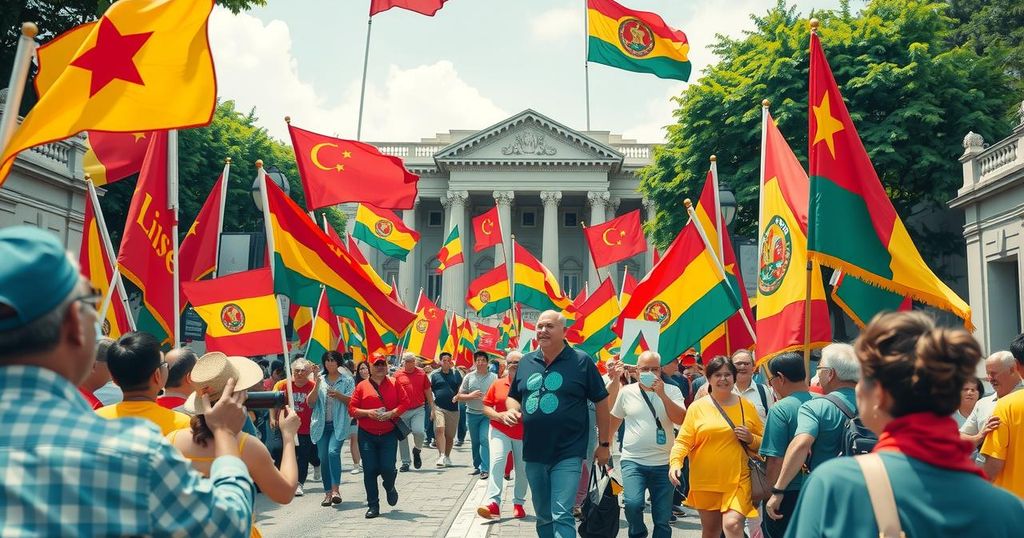Clashes Erupt as Morales Supporters Demand His Candidacy in Bolivia

Hundreds of Evo Morales’s supporters clashed with police in La Paz while pushing for his candidacy in the upcoming presidential elections. The protests stemmed from a ruling by the Constitutional Court banning Morales from running, igniting political tensions amid Bolivia’s economic crisis. Crucial discussions arise about judicial integrity and political manipulation in Morales’s bid for power.
In a dramatic turn of events, supporters of former Bolivian President Evo Morales rallied towards the country’s top electoral court in La Paz on Friday. Their gathering was aimed at advocating for Morales’s candidacy in the upcoming presidential elections set for August 17. However, tensions quickly escalated, resulting in clashes with police who attempted to disperse the crowd of demonstrators. These altercations reflect the heightened political climate as Bolivia grapples with serious economic troubles, the worst in four decades.
The protests erupted following a ruling by Bolivia’s Constitutional Court, which barred Morales from seeking re-election due to a restriction on presidents serving more than two terms. This regulation particularly impacts Morales, who has served three terms and resigned in 2019 amid protests related to his unsuccessful bid for a fourth term, which added fuel to existing political volatility.
As demonstrators reached the Supreme Electoral Tribunal, chants of “Comrades, what do we want? For Evo to come back!” resonated through the streets. Security forces erected barricades to prevent the crowd from advancing. Police reported injuries to two officers, a journalist, and a local merchant during the chaos, as protesters clashed with the authorities after police used tear gas to regain control. “They’re using firecrackers and rocks that are hurting our forces,” remarked Police Commander Juan Russo, emphasizing the violent turn of what began as a march for democracy.
Despite the court’s ruling that disqualified him from candidacy, Morales returned to Bolivia in 2020 after his party, the Movement Toward Socialism, won the presidency with his chosen successor, Luis Arce. Yet complications arose this week when Arce stated he would not seek re-election, reinforcing the credibility of the court’s disqualification against Morales.
Morales himself challenged this ruling, claiming it reflects an unjust judicial system manipulated by political powers. “The Constitutional Court issues unconstitutional arbitrary rulings at the whim of those in power,” he said, referring to his own past circumstances where the court allowed him to run despite earlier term limits. Such statements fueled discontent among his supporters, who regard him as a champion of Indigenous rights and economic redistribution.
Though Morales did not join the protest due to fears of arrest over human trafficking allegations he deems politically motivated, his absence was filled by passionate loyalists. Many donned masks resembling him, emphasizing their solidarity with the former leader. One representative of the marchers, David Ochoa, captured the sentiments of the crowd: “Evo Morales is each and every one of us. If they want to detain Evo Morales, they would need to take every one of us, too.”
The rally in La Paz showcases heightened tensions surrounding Evo Morales’s political ambitions amid economic despair in Bolivia. Supporters clash with police in their determination to secure his candidacy for the upcoming elections, despite the Constitutional Court’s ruling against him. The backdrop of this political strife underscores the complicated landscape of Bolivian politics characterized by deep divisions and conflicting judicial interpretations. Dynamics within the ruling government and fears surrounding Morales’s possible arrest suggest ongoing volatility ahead.
Original Source: apnews.com







